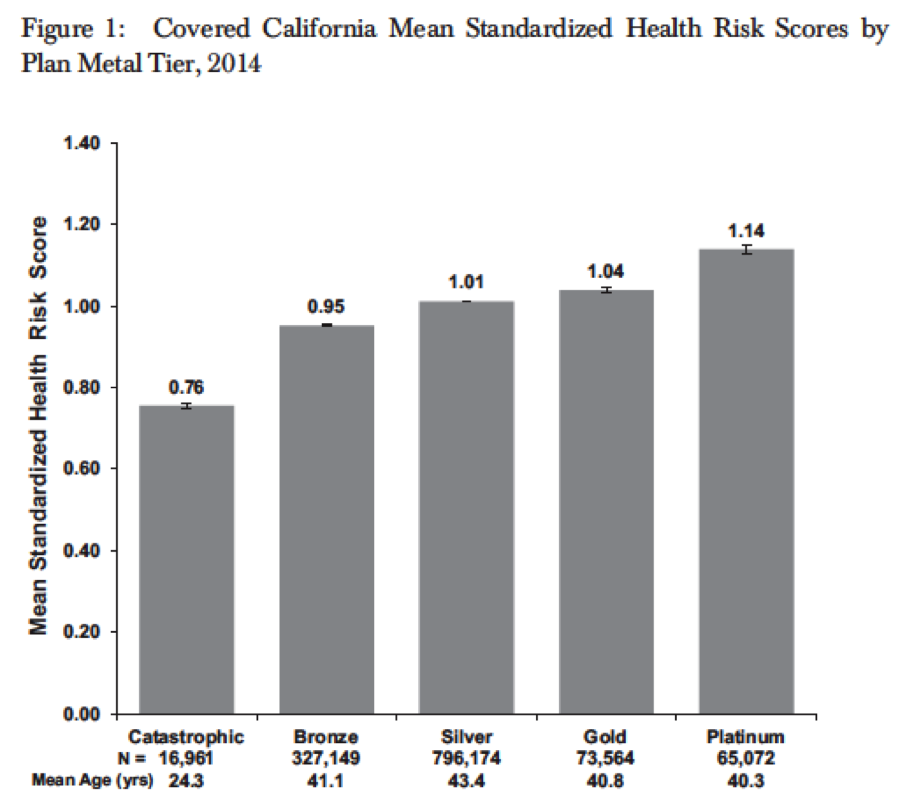The Affordable Care Act requires all individuals to be offered the same premium regardless of health status. Although there are some ratings bands based on age and smoking status, most people who purchase insurance on health insurance exchanges receive the same premium for any given insurance product from any given insurance company. The insurance products in the exchange, however, do vary in how generously the medical costs. Platinum products cover the largest share of patient cost but also have the highest premiums; catastrophic plans cover the smallest share of patient health care cost, but have the lowest premiums. Other metal tier plans (in decreasing order of generosity) include gold, silver and bronze plans.
This begs the question whether there is adverse selection where patients who are sicker are more likely to choose more generous plans. A paper by Bindman et al. (2015) examines just this question. They use data from the health insurance exchange in California known as Covered California.
They find that patients who elect more generous plans with higher premiums are more likely to be older and sicker patients. Additionally, they find that patients who are sicker were more likely to sign up for Covered California immediately (October 2013), whereas those who signed up in the last months of enrollment (March and April 2014) were significantly healthier. The authors find some variability in risk score across health plan but as the four largest plans made up 91% of the market, most of this variability was confined to small plans.
Source:
- Bindman, A. B., Hulett, D., Gilmer, T. P. and Bertko, J. (2015), Sorting Out the Health Risk in California’s State-Based Marketplace. Health Services Research. doi: 10.1111/1475-6773.12320
